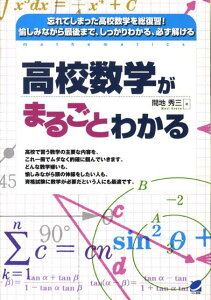Table of Contents
Let’s assume the definition of rational numbers is known. Real numbers that are not rational are called irrational numbers.
Here, we will prove that \( \sqrt{2} \) is an irrational number.
Proof
We will prove by contradiction.
Assume that \( \sqrt{2} \) is rational, then there exist coprime natural numbers \( m, n \) such that it can be written as:
\[ \sqrt{2} = \frac{m}{n} \]From this, we get:
\[ 2n^2 = m^2 \]The left side ( \(2n^2\) ) is even, so is the right side ( \(m^2\) ). In other words, we can express \( m \) as \( m = 2k \) for some natural number \( k \), and:
\begin{array}{crcl} & 2 n ^2 & = & ( 2k )^2 \\ & & = & 4k^2 \\ \Leftrightarrow & n^2 & = & 2k^2 \end{array}From this, we can infer that \( n \) is also even. However, this contradicts the assumption that \( m, n \) are coprime. Therefore, \( \sqrt{2} \) is irrational.
Similarly, it can be proven that \( \sqrt{n} \) is irrational when \( n \) is a prime number.
Generally, when \( b \) is not a perfect square, \( a \sqrt{b} \; (a, b \in \mathbb{N}) \) becomes irrational. The product of a rational and an irrational is irrational, so it’s sufficient to prove that \( \sqrt{b} \) is irrational. Also, if \( b \) is the product of prime factors raised to the power of 2, then it’s sufficient to prove the case where \( b \) is a prime number.
Proof
Assume \( b \) is factorized into \( k \) different prime numbers \( b_1, b_2, \cdots , b_k \) as follows:
\[ b = b_1 b_2 \cdots b_k ]Assume \( \sqrt{b} \) is rational, then there exist coprime natural numbers \( m, n \) such that it can be written as:
\[ \sqrt{b} = \frac{m}{n} \]From this, we get:
\[ b n^2 = m^2 \]The left side \( b n^2 \) includes \( b_1, b_2, \cdots, b_k \) as prime factors, so does the right side \( m^2 \). In other words, \( m \) can be expressed as:
\begin{eqnarray*} m & = & c b_1 b_2 \cdots b_k \\ & = & cb \end{eqnarray*}Similarly to \( m \), we have:
\begin{array}{crcl} & b n^2 & = & ( cb )^2 \\ & & = & c^2 b^2 \\ \Leftrightarrow & n^2 & = & c^2 b \end{array}From this, we can infer that \( n \) is also a multiple of \( b \), but this contradicts the assumption that \( m, n \) are coprime.
Thus, \( \sqrt{n} \) becomes rational (an integer) only when \( n \) is a perfect square.
In this case, we have proved the property for square roots, but the same proof can be applied to \( \sqrt[m]{n} \; (m, n \in \mathbb{N}) \).
Additional Proposition
The product of a rational number and an irrational number is irrational.
Proof
We will prove by contradiction.
Let \( p, q, r, s \) be integers, and \( x \) be an irrational number. Assume that the product of a rational number \( \frac{p}{q} \) and an irrational number \( x \) is a rational number \( \frac{r}{s} \). Then, we have:
\[ \frac{p}{q} = x \cdot \frac{r}{s} \]Rearranging the terms:
\[ x = \frac{ps}{qr} \]This implies that the right side is rational, which contradicts the fact that \( x \) is irrational.
Therefore, the product of a rational and an irrational is irrational.








